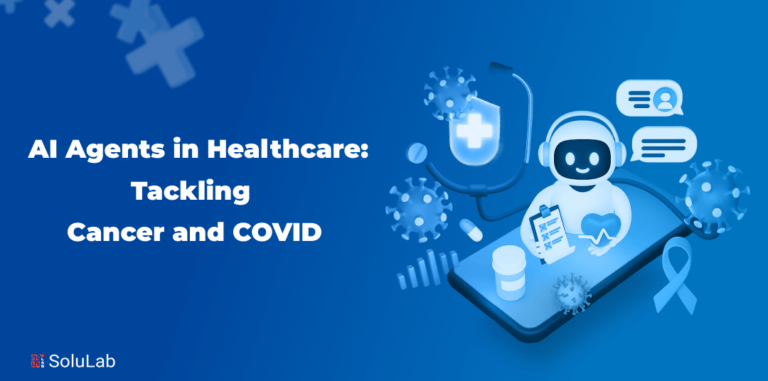
Blockchain enables companies to trace and track supply chain, end point distribution, thereby eliminating counterfeit drugs, associated patient risks and cost impact. It further prevents brand reputation damage and loss of revenue for the company. Meanwhile providing protection, privacy, and health data interoperability.
Blockchain technology and distributed ledgers can enable faster secure Clinical Trials processes, unlocking real opportunity in healthcare. Blockchain empowers the healthcare ecosystem by giving patients power over one of their most valuable resources — data.
As a trusted mediator, it can enable novel healthcare solutions; and as an incentive machine, it can help novel business models that handle new emerging challenges of healthcare.
Our current healthcare infrastructure
The healthcare industry is one of the top global industries, contributing over 10% of the most developed nations’ gross domestic product (GDP). Numerous inefficiencies, errors, bureaucracy, and high administrative costs plague the healthcare industry. Patients have shown concern about their data being used to generate profits by third parties. The gap between providers and payers is the major issue in providing quality healthcare services. The dependency on intermediaries in the supply chain makes it even worse.
And up to 40% of healthcare provider data records are filled with errors or misleading information. Healthcare data frauds in institutions are estimated to cost around $380 per record in the current times. Expect this amount to increase over time.
Blockchain to competently improve various areas of healthcare
A blockchain-powered health information exchange could unlock the true value of interoperability. Blockchain-based systems can potentially reduce or eliminate the friction and costs of current intermediaries.
The promise of blockchain has widespread implications for stakeholders in the healthcare ecosystem. Capitalizing on this technology has the potential to connect fragmented systems to generate high quality primary care. In the long term, a nationwide blockchain network for electronic medical records may improve efficiencies and support better patient health outcomes.
Let’s understand more about all the areas blockchain can significantly improve or automize.
Health and medical data collaborations and security
Blockchain technology is a perfected system for population health studies. It allows a safe passage for participants-volunteers to participate and monetize their data for any types of research. Moreover, better data sharing of population medical data can drastically improve primary care and sick care across the global population. With more data sets, new technologies like AI and ML would be possible, which will result in discovering widespread risks to population health.
The security features of blockchain enable the scientific community to produce, share and distribute IP information without having to worry about duplication and fraud. Data on a blockchain is immutable and traceable. Any changes in data are not allowed unless validators within the blockchain approve the change. This prevents any data manipulation by vested interests. Blockchain and IoT can also help trace and track the entire supply chain for counterfeits, helping the future scientific community to focus solely on research and less on data security and data management.
Blockchain could facilitate nationwide interoperability of electronic health records, allowing providers access to patients’ medical histories, current medications, and prior imaging studies. Accordingly, full interoperability could save the global healthcare system hundreds of billions annually.
Faster Clinical Trials processes
Clinical research encounters myriad challenges, from patient registration to data privacy matters, regulatory provisions, and spiraling expenditures. Blockchain technology has the inbuilt features to overcome these challenges, thus pushing for governance throughout the value chain at the enterprise level, aiding efficient clinical trials, and building trust through equitable and open processes with all stakeholders. Its distinguishing features, such as data immutability and traceability, fool-proofs the system against fraud and cyber-attacks. The blockchain platform guarantees data security, improved collaboration, patient safety, and data traceability across the value chain.
When governed through smart contracts, the clinical research and trial notify and delegate tasks per the compliance procedures, ensuring faster and improved communication and reducing duplication and mistakes. The blockchain network implements a web-based user interface to conceive the data from the blockchain and facilitate the exchange. A proof of concept is protected under the blockchain without allowing any party to duplicate or manipulate data. Lastly, the research outcomes and results can be stored for a lifetime and traced and tracked at any given time.
Blockchain technology makes clinical trials transparent and builds trust among various collaborators. The user interface improves communication between collaborators, sidetracking manual email communication, or data exchange over public cloud solutions. With blockchain, collaborators can access clinical data over a secure and distributed network.
A blockchain smart contract helps in automating rule-based communication using regulatory standards or key metrics. Besides, various service procedures associated with clinical trials, including participants’ identity management, medical data grouping, and audit query, are all stored under the blockchain smart contract.
Robust Drugs and Equipment supply chain
Smart-contract could facilitate automatic product re-ordering if a product is in transit or enable payment to be released from sender to recipient upon confirmed receipt of the product. A blockchain network might get developed to maximize the benefit of off-chain storage. For instance, a blockchain network may employ off-chain storage to store personal identifier details to streamline compliance with HIPAA or facilitate sharing large files or documents. In addition, blockchain may deem off-chain storage to maximize search query efficiency.
Regardless, network designers must guarantee that the search capacities allowed by the off-chain database stick to the network’s existing authorization structure. The cryptography ingrained in blockchain promotes an immutable and verifiable chain of custody that can be employed to support product investigation. Further, network stakeholders could appoint a digital twin of a physical influence on blockchain by integrating blockchain with other technologies such as internet of things sensors (IoT) or ultra-high-resolution cameras. The digital twin could be leveraged to characterize an immutable ledger of product geolocation or temperature data and could also improve patient safety by guaranteeing that the product label has not been counterfeited.
Blockchain helps Pharma companies trace and track supply chain endpoint distribution, eliminating counterfeit drugs, associated patient risks, and cost impact. It further prevents brand reputation damage and loss of revenue for the company.
Faster claims settlement in medical insurance
Billing and insurance-related costs are an estimated 18% of global health expenditure. It is known that more than a quarter of procedures had to wait 4+ business days for prior authorization (acceptance from a patient’s insurer to cover a drug). Blockchain, aligned with data standards, can potentially speed up some of these processes and reduce costs.
Insurance claim processing can be tedious, time-consuming, inefficient, and sensitive to human blunders, particularly when verification is done through paperwork. Furthermore, there is a deficiency of transparency in the submission of claims, and the processing is subject to unfavorable effects of delays and errors, leading to inadequate customer service. Insurance claims are an approach concerning several entities – insurer, insured, regulators, and intermediaries, mostly distinguished by inefficiencies and malevolent intents.
Blockchain can drastically reduce the claim settlement processing time and make it hassle-free. Insurance can utilize the blockchain to construct immutable and auditable information at the stages of insurance claim processing that can be re-accessed by all parties. It will also help with discounts, rebates, and refund tracking.
Genomics
It is the study of complete sets of genes in organisms that incorporates elements of genetics. The genomics industry in healthcare intends to drastically improve human health’s future. It is only possible through blockchain to safely store massive genetic data points, where blockchain can significantly assist. It can enrich genomics knowledge and help scientists gather & store valuable information safely.
Genomics-based startups like EncrypGen maintain a blockchain-based DNA data marketplace known as Gene-chain. The platform facilitates genetic data searching, storing, communicating, and selling. Members of the Gene-Chain forum use genetic data to research and evolve healthcare by buying the information via protected and traceable DNA tokens.
This startup is also looking forward to combining blockchain payments and auditing platforms with Gene-chain. This will help form meaningful collaborations with analytics creators and healthcare software firms while driving efficient and safe procedures.
Conclusion
Blockchain can potentially enhance trust, collaboration, interoperability, auditability, and traceability across important functions of healthcare such as patient identity management, medical records, clinical trials, drug supply chain management, claims processing and financial transactions. Blockchain has the capability to improve collaboration among the healthcare ecosystem without compromising on data security. In the near time we will see many segments of the healthcare industry using blockchain to ease communication and collaboration, which will reduce research, product development life cycles of pharma, medical devices companies.
Blockchain’s vast potential in areas such as fighting counterfeiting of drugs, easier licensure processes, and technical knowledge sharing makes it suitable for a specialized medical ecosystem. It will further improve the efficiencies of primary care, sick care by improving governance and business operations of hospitals and telemedicine companies. The technology has the potential to change processes, business models, and information flows in healthcare completely.




